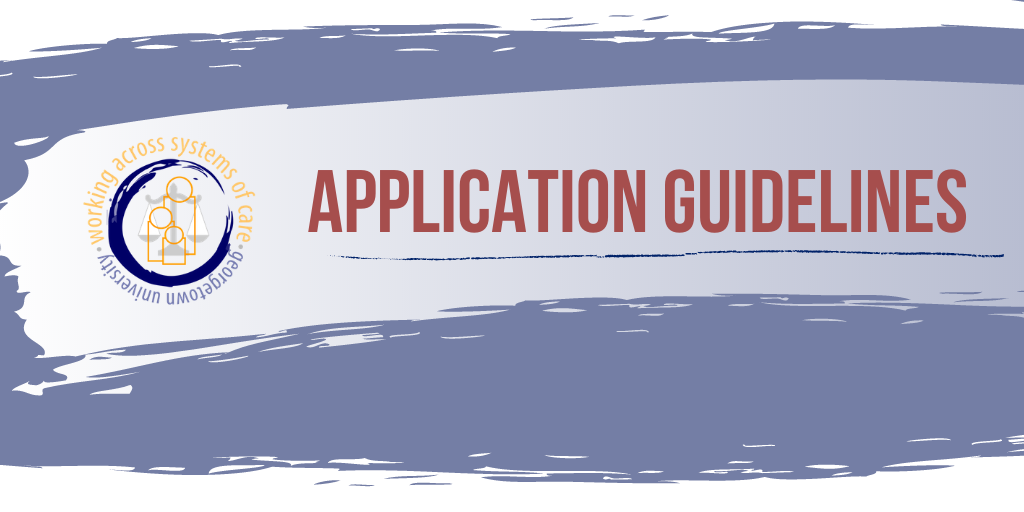School-Justice Partnerships and Diversion Pathways
The School-Justice Partnerships and Diversion Pathways Certificate Program is designed to provide school and district staff, court professionals, law enforcement, and other child-serving community leaders with the knowledge and understanding necessary to address the immediate and long term needs of students known to, or at risk of entering, the juvenile justice system. The goals of this Certificate Program are to:
- promote an ongoing engagement in school among youth at risk,
- partner effectively across child-serving systems,
- develop diversion programs and
- disrupt school-justice pathways, and improve academic outcomes for all students.
School and district staff will receive the training and support they need to manage school and classroom behavior in positive ways, balanced with the provision of quality educational instruction for all students. They will learn how to create safe and supportive learning environments without excluding and forcing out those students who are most at risk for negative life outcomes, including students with special education needs, behavioral problems, child welfare involvement, or placement in juvenile justice facilities. Law enforcement, courts, and leaders from public agencies like child welfare, behavioral health, and juvenile justice will be instructed on strategies of how to work with schools and school districts to create environments outside of the school setting that foster better academic and social outcomes for youth at risk.
All participants will receive instruction from national experts on cutting-edge ideas, policies, and practices from across the country focused on the development of systems that take a holistic approach to the educational process and best practices in developing a school diversion program. Upon completion of the Certificate Program and submission of an approved Capstone Project, participants will receive an Executive Certificate from Georgetown University, membership into CJJR’s Fellows Network, and ongoing support from the CJJR staff.
In recent years, CJJR has partnered with the National Association of Counties (NACo), along with the American Institutes for Research (AIR) and the National Center for Youth Opportunity and Justice to offer a field-based version of the program in which a group of counties within a state can jointly apply to be part of the program.
Curriculum
The School-Justice Partnerships and Diversion Pathways Certificate Program provides school and district staff, court professionals, juvenile justice, law enforcement and other child-serving cross-agency community leaders with the knowledge and understanding necessary to address the educational and related needs of children known to, or at risk of entering, the juvenile justice system.
The curriculum of the Certificate Program focuses heavily on the change process that is needed to move forward reforms with respect to education and juvenile justice. Case studies and other interactive learning techniques help participants apply the learning to situations they are likely to encounter in their own jurisdictions. In addition to an expert panel of experienced reform leaders and a youth panel, the curriculum includes the following modules:
Instructors
Instructors and Panelists for this program have included:
- Bersheril Bailey, Senior Technical Assistance Consultant, American Institutes for Research
- Kevin Bethel, Senior Policy Advisor & Stoneleigh Foundation Fellow, Juvenile Justice Research Reform Lab, Department of Psychology, Drexel Univeristy
- Shay Bilchik, Director, Center for Juvenile Justice Reform
- Greta Colombi, Senior Researcher, American Institutes for Research
- Jay Corpening, Chief District Court Judge, 5th District, State of North Carolina
- Cathy Foley Geib, Deputy Director, Connecticut Judicial Branch Court Support Services Division
- Jacqui Greene, Program Area Director, Policy Research Associates, National Center for Mental Health and Juvenile Justice
- Carla Guenthner, Chief Magistrate Judge, Hamilton County, Ohio Juvenile Court
- Daniel Kim, Chief of Staff, Division of Student Equity and Opportunity, Denver Public Schools
- Michelle Lustig, President/CEO, Foster Horizons, Inc.
- David Osher, Vice President, American Institutes for Research
- Isaiah Pickens, Assistant Director of Services Systems, National Center for Child Traumatic Stress, UCLA Neuropsychiatric Institute and Hospital
- John Rosiak, Founder and Director, Rosiak Associates, LLC, Prevention Partnerships
Application Guidelines
The program is designed for public and private sector leaders working in the education and juvenile justice fields, as well as with other relevant child-serving agencies and organizations. A total of seven multi-disciplinary teams will be accepted for participation in the program.
Local teams should be composed of applicants with demonstrated readiness for implementing reforms, especially efforts that engage leaders in other systems, and their agency’s relationship with other child-serving agencies. Team members can be senior-level professionals in the juvenile justice, child welfare, mental health, and education fields and other related systems of care.
This program is NOT accepting applications from students who do not also hold a professional role in a child-serving organization.
More Information

As part of the Certificate Program, participants are required to develop and implement a Capstone Project during the twelve-month period following the completion of their Certificate Program session.

The primary goal of all of our Certificate Programs is not simply knowledge, but effective implementation in a local reform effort. We study “what works” and collaborate with leaders to bridge the gap between theory and practice.
